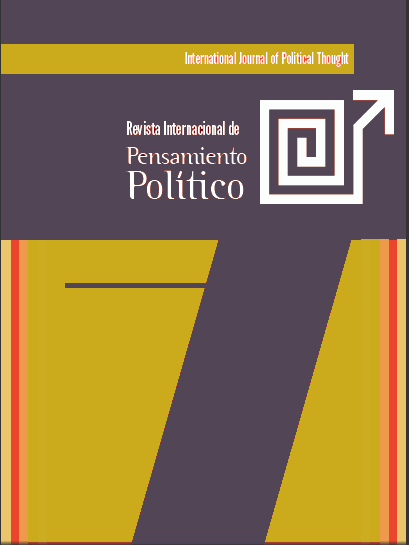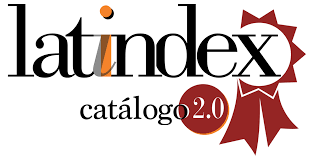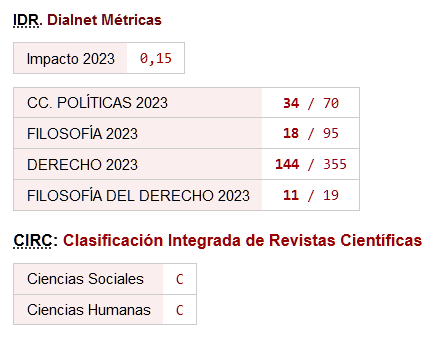Online hate speech and its prosecution by the European Court of Human Rights
DOI:
https://doi.org/10.46661/revintpensampolit.10879Keywords:
hate speech, incitement to hatred, online, ECtHRAbstract
Online hate speech can easily be produced and distributed effortlessly and even anonymously, with the potential to reach a global and diverse audience in real time. Not to mention that online content remains online and can resurface and gain popularity over time. This has led some states to hold companies responsible for managing the flow of information and opinions from the internet, raising concerns about limiting freedom of expression versus protecting the rights of others. Therefore, the ongoing understanding and analysis of this issue by the European Court of Human Rights (hereinafter the ECtHR) is crucial in shaping an effective, harmonised and workable response for all Council of Europe Member States.
Downloads
References
LEGISLACIÓN, TEXTOS NORMATIVOS E INSTITUCIONALES:
United Nations (2022). What is hate speech?. United Nations. https://www.un.org/en/hate-speech/understanding-hate-speech/what-is-hate-speech
Comité de Ministros (2022). Recomendación CM/REC(2022)16 del Comité de Ministros de los Estados Miembros para combatir el discurso de odio. Portal del Consejo de Europa. https://search.coe.int/cm/Pages/result_details.aspx?ObjectId=0900001680a67955
Agencia Europea de los Derechos Fundamentales (2021). Encouraging hate crime reporting – The role of law enforcement and other authorities. Oficina de Publicaciones de la Unión Europea. https://fra.europa.eu/en/publication/2021/hate-crime-reporting
Instrumento de Ratificación del Protocolo adicional al Convenio sobre la Ciberdelincuencia relativo a la penalización de actos de índole racista y xenófoba cometidos por medio de sistemas informáticos, hecho en Estrasburgo el 28 de enero de 2003. Boletín Oficial del Estado, 26, de 30 de enero de 2015. PP.7214-7224.
Comité de Ministros (1997). Recomendación 20 del Comité de Ministros sobre el “Discurso de Odio”. Portal del Consejo de Europa. http://www.coe.int/t/dghl/standardsetting/media/doc/cm/rec%281997%29020&expmem_EN.asp
Instrumento de Ratificación del Convenio para la Protección de los Derechos Humanos y de las Libertades Fundamentales, hecho en Roma el 4 de noviembre de 1950, y enmendado por los Protocolos adicionales números 3 y 5, de 6 de mayo de 1963 y 20 de enero de 1966, respectivamente. Boletín Oficial del Estado, 243, de 10 de octubre de 1979. PP.23564-23570.
Instrumento de Ratificación de España del Pacto Internacional de Derechos Civiles y Políticos, hecho en Nueva York el 19 de diciembre de 1966. Boletín Oficial del Estado, 103, de 30 de abril de 1977. PP.9337-9343.
Adhesión de España al Convenio Internacional sobre Eliminación de todas las Formas de Discriminación Racial, aprobado por la Asamblea General de las Naciones Unidas el 21 de diciembre de 1965, con una reserva a la totalidad del artículo XXII (Jurisdicción del Tribunal Internacional de Justicia). Boletín Oficial del Estado, 118, de 17 de mayo de 1969. PP.7462-7466.
JURISPRUDENCIA DEL TRIBUNAL EUROPEO DE DERECHOS HUMANOS:
Standard Verlagsgesellschaft mbH c. Austria, núm.39378/15, TEDH 2021. https://hudoc.echr.coe.int/eng?i=001-213914
Erkizia Almandoz c. España, núm.5869/17, TEDH 2021. https://hudoc.echr.coe.int/eng?i=001-210492
Asociación Accept y otros c. Rumanía, núm.19237/16, TEDH 2021. https://hudoc.echr.coe.int/eng?i=001-210362
Société Éditrice de Mediapart y otros c. Francia, núm.281/15, TEDH 2021. https://hudoc.echr.coe.int/eng?i=001-207357
OOO Flavus y otros c. Rusia, núms.12468/15 y otros dos, TEDH 2020. https://hudoc.echr.coe.int/eng?i=001-203178
Lilliendahl c. Islandia (Dec.), núm.29297/18, TEDH 2020. https://hudoc.echr.coe.int/fre?i=001-203199
Magyar Jeti Zrt c. Hungría, núm.11257/16, TEDH 2018. https://hudoc.echr.coe.int/fre?i=001-187930
Savva Terentyev c. Rusia, núm.10692/09, TEDH 2018. https://hudoc.echr.coe.int/fre?i=001-185802
Egil Einarsson c. Islandia, núm.31221/15, TEDH 2018. https://hudoc.echr.coe.int/eng?i=001-184672
M.L. y W.W. c. Alemania, núm.65599/10, TEDH 2018. https://hudoc.echr.coe.int/eng?i=001-183947
Tamiz c. Reino Unido (Dec.), núm.3877/14, TEDH 2017. https://hudoc.echr.coe.int/eng?i=001-178106
Medzlis Islamske Zajednice Brcko y otros c. Bosnia y Herzegovina (GS), núm.17224/11, TEDH 2017. https://hudoc.echr.coe.int/eng?i=001-175180
Satakunnan Markkinapörssi Oy y Satamedia Oy c. Finlandia (GS), núm.931/13, TEDH 2017. https://hudoc.echr.coe.int/eng?i=001-175218
Pihl c. Suecia (Dec.), núm.74742/14, TEDH 2017. https://hudoc.echr.coe.int/eng-press?i=003-5650866-7156310
Magyar Tartalomszolgáltatók Egyesülete y Index Hu ZRT c. Hungría, núm.22947/13, TEDH 2016. https://hudoc.echr.coe.int/fre?i=001-160314
Couderc y Hachette Filipacchi Associés c. Francia (GS), núm.40454/07, TEDH 2015. https://hudoc.echr.coe.int/eng?i=001-158861
Tierbefreier E.V. c. Alemania, núm.45192/09, TEDH 2014. https://hudoc.echr.coe.int/spa?i=001-140016 DOI: https://doi.org/10.1088/1475-7516/2014/09/001
Delfi AS c. Estonia (GS), núm.64569/09, TEDH 2013. https://hudoc.echr.coe.int/fre?i=002-8960
Ahmet Yildirim c. Turquía, núm.3111/10, TEDH 2012. https://hudoc.echr.coe.int/eng?i=001-115705
Wrona c. Polonia, núm.23119/05, TEDH 2010. https://hudoc.echr.coe.int/eng?i=001-96433
Féret c. Bélgica, núm.15615/07, TEDH 2009. https://hudoc.echr.coe.int/eng?i=001-93626
Soulas y otros c. Francia, núm.15948/03, TEDH 2008. https://hudoc.echr.coe.int/eng?i=001-87370
Sürek y Özdemir c. Turquía (GS), núm.26682/95, TEDH 1999. https://hudoc.echr.coe.int/eng?i=001-58278
REFERENCIAS DOCTRINALES:
Díez Bueso, L. (2018). “La libertad de expresión en las redes sociales. Implicaciones jurídicas de los usos y comentarios efectuados a través de las redes”. Revista de Internet, Derecho y Política, 27, pp.5-16. https://doi.org/10.7238/idp.v0i27.3146 DOI: https://doi.org/10.7238/idp.v0i27.3146
Esquivel Alonso, Y. (2016). “El discurso del odio en la jurisprudencia del Tribunal Europeo de Derechos Humanos”. Cuestiones constitucionales: revista mexicana de derecho constitucional, 35. https://dialnet.unirioja.es/servlet/articulo?codigo=5972275&orden=0&info=link https://doi.org/10.22201/iij.24484881e.2016.35.10491 DOI: https://doi.org/10.22201/iij.24484881e.2016.35.10491
García San José, D.I. (2000). “La libertad de expresión en la jurisprudencia del Tribunal Europeo de Derechos Humanos: un análisis crítico”. Revista del Poder Judicial, 3ª época, 57, pp.13-30.
García San José, D.I. (2022). Libertad de expresión 4.0 en el sistema del Convenio Europeo de Derechos Humanos. Tirant lo Blanch.
García Santos, M. (2017). “El límite entre la libertad de expresión y la incitación al odio: análisis de las sentencias del Tribunal Europeo de Derechos Humanos”. Comillas Journal of International Relations, 101027-046, pp.27-46. https://doi.org/10.14422/cir.i10.y2017.003 DOI: https://doi.org/10.14422/cir.i10.y2017.003
Martín Herrera, D. (2014). “Libertad de expresión: ¿derecho ilimitado según el TEDH? Del discurso de odio al crimen de odio”. Estudios de Deusto, 62 (2), pp.15-40. https://doi.org/10.18543/ed-62(2)-2014pp15-40 DOI: https://doi.org/10.18543/ed-62(2)-2014pp15-40
Presno Linera, M. (2020). “La libertad de expresión en Internet y las redes sociales: análisis jurisprudencial”. Revista Catalana de Dret Públic, 61, pp.65-82.
Rollnert Liern, G. (2020). “Redes sociales y discurso del odio: perspectiva internacional”. Revista de Internet, Derecho y Política, 31, pp.1-14. https://doi.org/10.7238/idp.v0i31.3233 DOI: https://doi.org/10.7238/idp.v0i31.3233
Teruel Lozano, G.M. (2016). La lucha del derecho contra el negacionismo: una peligrosa frontera. Estudio constitucional de los límites penales a la libertad de expresión en un ordenamiento abierto y personalista. Centro de Estudios Políticos y Constitucionales.
Downloads
Published
How to Cite
Issue
Section
License
Copyright (c) 2024 Francisco Placín Vergillo

This work is licensed under a Creative Commons Attribution-NonCommercial-ShareAlike 4.0 International License.
Open access policy
Free and open access is allowed to any interested party to all the contents of the journal issues, free of charge, being able to print and transfer all the articles, with the only condition of specifying the source and authorship.
The journal: a) does not charge authorship costs for the processing of articles or for their submission, b) maintains copyright for authors without restrictions, c) facilitates authors to keep their publication rights without limitations.
The International Journal of Political Thought is an original work of the Laboratory of Political Ideas and Practices of the Pablo de Olavide University. All articles included in the Journal are original work of their respective authors. This Journal is freely offered to the scientific and academic community at no cost and releases the contents according to the license "Attribution-NonCommercial-ShareAlike 4.0 CC BY-NC-SA" of the Creative Commons project available in the following url: https://creativecommons.org/licenses/by-nc-sa/4.0/legalcode
If you wish to translate or compile any of the articles available here, please contact us at contacto












 ISSN: 1885-589X
ISSN: 1885-589X  Universidad Pablo de Olavide
Universidad Pablo de Olavide